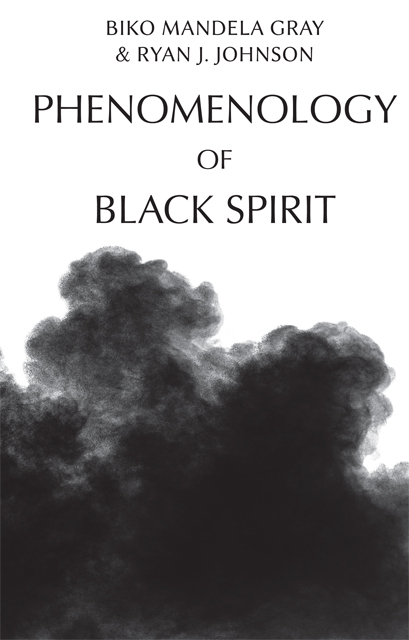Conclusion: Idealism and Black Power
Published online by Cambridge University Press: 10 August 2023
Summary
Like an owl exploding in fire …
– Amiri Baraka, ‘Somebody Blew up America’Afterword, or the Phenomenology of Afterlives
As always, the dialectical movement relinquishes (entäußert) yet bears forth and recollects all that has come before. Everyone from Douglass and Jacobs to X and Davis, to the many, many others who we have not named, compose Black spirit’s coming-to-be and relinquishing into time. This ‘relinquishing, however, is likewise the relinquishing of itself ‘ (PS 807). ‘In its own self ‘, Hegel continues, ‘this self-relinquishing relinquishes itself [diese Entäußerung sich an ihr selbst entäußert] and, in that way, is in its extension as well as in its depth, in the self ‘ (PS 808). This is especially true of Black history, marked as it is by irremediable loss, violent erasure, and a wake of dispossession.
Black spirit, we think, resonates strongly with how Hegel speaks of the path taken through his Phenomenology – ‘a path of despair’ (PS 78). For the protagonist moving along it, Hegel writes, ‘this path has negative meaning …, and what is the retaliation of the concept will count, instead, to it, as the loss of itself, for on this path, it loses its truth’ (PS 77). In Black history, there is an even deeper kind of loss, one that is more Hegelian than Hegel could have realised: a loss that loses itself. Given this loss of loss, Black spirit cannot simply turn inward and recollect all that has gone before, but must instead formulate what Hartman calls wayward lives in spaces, often in ‘urban commons where the poor assemble, improvise the forms of life, experiment with freedom, and refuse the menial existence scripted for them’. Perhaps the best way to think of this improvisational recollective insistence of previous moments in later moments, of all that was lost and forgotten in the fire and sea, is to evoke Hartman’s notion of afterlives. In this book, we have recomposed Hegel’s Phenomenology so that it becomes a book about the intersecting afterlives of slavery and loss, as well as the joy and vitality bound up with them; or perhaps it is a book of afterlives of afterlives, weaving and unfolding until the movement of these entangled afterlives unfolds itself through a gallery of shadows, the dispossessed absolute living in its own wake.
- Type
- Chapter
- Information
- Phenomenology of Black Spirit , pp. 261 - 274Publisher: Edinburgh University PressPrint publication year: 2022



